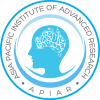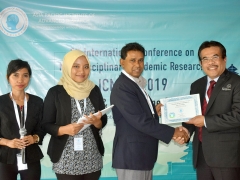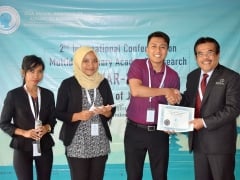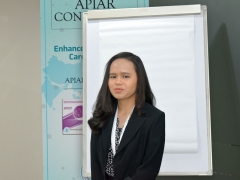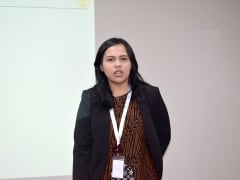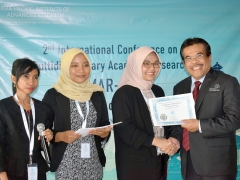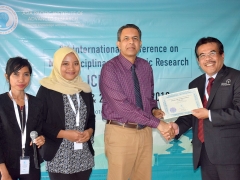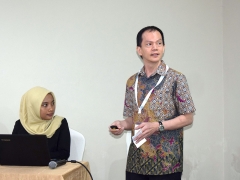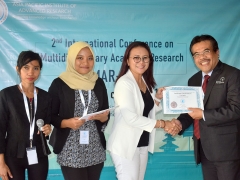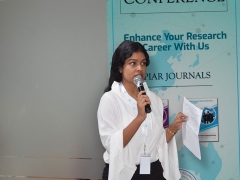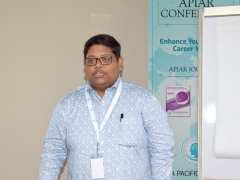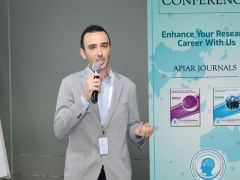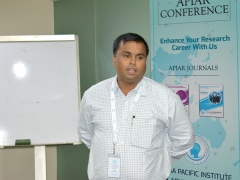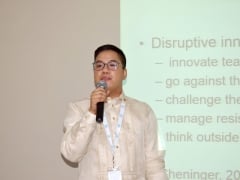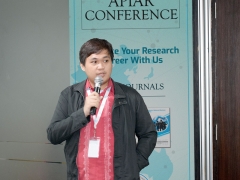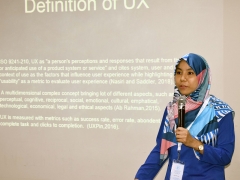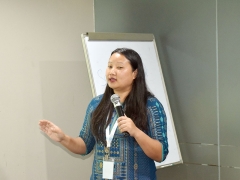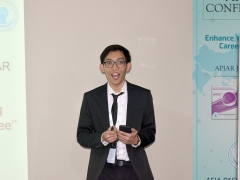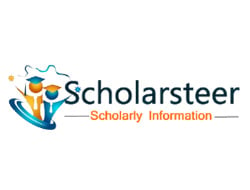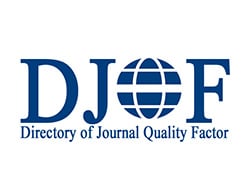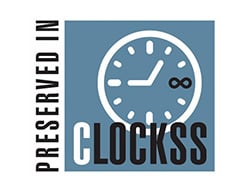2nd International Conference on Multidisciplinary Academic Research (ICMAR-2019), Bali, Indonesia
DATE: 2019-06-22 - 2019-06-23
VENUE: Hotel Horison, Legian, Bali, Indonesia.
CONFERENCE PROCEEDINGS : ICMAR-2019
FRONT MATTER: ICMAR-2019 (VOLUME 2)
Conference:
Conference: 2nd International Conference on Multidisciplinary Academic Research (ICMAR-2019)
Chief Editor: Prof. Dermawan Wibisono
Location: Hotel Horison, Bali, Indonesia.
Date: 22nd and 23rd of June, 2019
Sponsor: Asia Pacific Institute of Advanced Research (APIAR)
Publisher:
Asia Pacific Institute of Advanced Research (APIAR)
Suite 1A Level 2; 802 Pacific Highway; Gordon NSW 2072; Australia
Document Information:
Document Type: Proceedings Paper
Language: English
ISBN: 978-0-6482404-5-7
Copyright @ 2018, Asia Pacific Institute of Advanced Research (APIAR).
DESIGN OF PERFORMANCE MANAGEMENT SYSTEMS FOR MARINE TRANSPORTATION SYSTEM IN COMPANY X
Best Paper in Business.
Author details:
- Putu Yunik Tri Wedayanti, Institut Teknologi Bandung, Indonesia.
- Dermawan Wibisono, Institut Teknologi Bandung, Indonesia and Universitas Pertamina, Indonesia.
- Dian Prama Irfani, Institut Teknologi Bandung, Indonesia.
Page Numbers: 40 - 40
DOWNLOADGRADUATES’ TEAMWORK SKILLS BOIL OVER IN CAMBODIA
Best paper in Education.
Author details:
- Songheang Ai, SEAMEO TED, Phnom Penh, Cambodia.
Page Numbers: 186 - 201
DOWNLOADDIGITAL CUSTOMER EXPERIENCE: A SYSTEMATIC ANALYSIS OF DIGITALIZATION PROCESS
Best paper in Information Technology.
Author details:
- Azira Ab Aziz, University of Hail, Hail, Kingdom of Saudi Arabia.
- Peter Woods, Multimedia University, Cyberjaya, Malaysia.
Page Numbers: 235 - 235
DOWNLOADINCOME DISTIBUTION AND INCIDENCE OF POVERTY IN SRI LANKA
Best paper in Social Sciences.
Author details:
- Ajith Dissanayaka, University of Kelaniya, Kelaniya, Sri Lanka.
Page Numbers: 250 - 250
DOWNLOADEVALUATION OF A BUSINESS STRATEGY POST MERGER & ACQUISITION: STUDY CASES AT PT. H.M SAMPOERNA TBK, PT. BENTOEL INTERNATIONAL INVESTAMA TBK AND PT. XL AXIATA TBK
Author details:
- Florentinus Suryo Susilo, Institut Teknologi Bandung, Indonesia.
- Prof. Dr. Ir. Kuntoro Mangkusubroto, Institut Teknologi Bandung, Indonesia.
Page Numbers: 01 - 01
DOWNLOADIMPROVING THE MARKETING PROCESS IN EXTRACTIVE INDUSTRY USING SERVICE EXCELLENCE APPROACH: A STUDY IN PT. COALNESIA
Author details:
- Ayu Satya Karuniawati, Institut Teknologi Bandung, Indonesia.
- Asnan Furinto, Bina Nusantara University, Indonesia.
Page Numbers: 02 - 16
DOWNLOADINVESTMENT ANALYSIS OF A NEW SEMI MOBILE CRUSHER PROJECT AT-PT. SEMEN JAWA A SUBSIDIARY COMPANY OF SIAM CEMENT GROUP
Author details:
- Fitri Nopitasari, Bandung Institute of Technology, Indonesia.
- Maryat Nirwandi, Bandung Institute of Technology, Indonesia.
Page Numbers: 17 - 31
DOWNLOADBRAND JEALOUSY, WILLINGNESS TO PAY PREMIUM, AND BRAND LOYALTY: THE MEDIATING ROLE OF MATERIALISM AND BRAND ATTACHMENT OF GLOBAL BRAND PRODUCTS
Author details:
- Elizabeth Christine Carolina Simangunsong, Universitas Pelita Harapan, Tangerang, Indonesia.
- Evo Sampetua Hariandjab, Universitas Pelita Harapan, Tangerang, Indonesia.
Page Numbers: 32 - 32
DOWNLOADNATURAL RESOURCES AND RESOURCE CURSE EFFECT ON CHILD HEALTH OUTCOMES IN THE DEVELOPING ECONOMIES
Author details:
- Azmat Gani, Sultan Qaboos University, Muscat, Oman.
Page Numbers: 33 - 39
DOWNLOADDESIGN OF PERFORMANCE MANAGEMENT SYSTEMS FOR MARINE TRANSPORTATION SYSTEM IN COMPANY X
Best Paper in Business.
Author details:
- Putu Yunik Tri Wedayanti, Institut Teknologi Bandung, Indonesia.
- Dermawan Wibisono, Institut Teknologi Bandung, Indonesia and Universitas Pertamina, Indonesia.
- Dian Prama Irfani, Institut Teknologi Bandung, Indonesia.
Page Numbers: 40 - 40
DOWNLOADUNDERSTANDING THE DIFFERENCES IN RECIPIENTS’ PERCEPTION ON THE CORPORATE SOCIAL RESPONSIBILITY PROGRAM IN EDUCATION CONDUCTED BY PT KALBE FARMA TBK
Author details:
- Michelle Yolanda, Institut Teknologi Bandung, Indonesia.
- Dr. Anggara Wisesa, Institut Teknologi Bandung, Indonesia.
Page Numbers: 41 - 51
DOWNLOADBUSINESS CANVAS MODEL ANALYSIS OF PRIVATE CLINIC TO SERVE INDONESIAN SOCIAL INSURANCE SYSTEM
Author details:
- Angelina Widjaja, Universitas Pelita Harapan, Indonesia.
- Zoel Hutabarat, Universitas Pelita Harapan, Indonesia.
Page Numbers: 52 - 58
DOWNLOADCHOOSING OF FOB OR DDP FROM BUYER PERSPECTIVE IN INDIRECT IMPORT OF THE PRODUCTION EQUIPMENT
Author details:
- Praftiwi Umitri, Procurement Specialist, Jakarta, Indonesia.
Page Numbers: 59 - 65
DOWNLOADBUSINESS STRATEGY DEVELOPMENT OF PT IHSAN SOLUSI INFORMATIKA (ISI) IN IT INDUSTRY AS AN INTERMEDIARY IN PAYMENT SERVICES
Author details:
- Sacha MauludianitaOctafira, Bandung Institute of Technology, Indonesia
- Mohammad Hamsal, Bina Nusantara University, Indonesia.
Page Numbers: 66 - 78
DOWNLOADREDUCING SERVICE WAITING TIME OF READY MEDICINE IN GENERAL HOSPITAL
Author details:
- Felix Limanjaya, Institut Teknologi Bandung, Indonesia.
- Dr. Anggara Wisesa, Institut Teknologi Bandung, Indonesia.
Page Numbers: 79 - 85
DOWNLOADINCREASING PUBLIC SERVICE PERFORMANCE THROUGH THE CAPITALIZATION OF DYNAMIC CAPABILITY AND INNOVATION PERFORMANCE: AN EMPIRICAL STUDY OF PUBLIC SERVICE AGENCIES IN INDONESIA
Author details:
- Reza Satria, University of Indonesia, Indonesia.
- Ratih Dyah Kusumastuti, University of Indonesia, Indonesia.
Page Numbers: 86 - 86
DOWNLOADPROPOSED VALUE ADDED AND MARKETING STRATEGY FOR INDONESIAN SPECIALTY COFFEE
Author details:
- Muhammad Nadif, Institut Teknologi Bandung, Indonesia.
- Mustika Sufiati Purwanegara, Institut Teknologi Bandung, Indonesia.
Page Numbers: 87 - 87
DOWNLOADINDONESIA’S NEW OIL & GAS REGIME: ANALYSIS OF COST RECOVERY PSC GROSS SPLIT PSC ECONOMIC ANALYSIS ON FIELD X
Author details:
- Gresia Oktoria Winasta, Institut Teknologi Bandung, Indonesia.
- Dr. Anggara Wisesa, Institut Teknologi Bandung, Indonesia.
Page Numbers: 88 - 93
DOWNLOADTHE IMPACT OF STRATEGIC ENTREPRENEURSHIP TO ESTABLISHED FIRM PERFORMANCE IN A DYNAMIC ENVIRONMENT
Author details:
- Arista Sony, University of Indonesia, Indonesia.
- Avanti Fontana, University of Indonesia, Indonesia.
Page Numbers: 94 - 105
DOWNLOADLINKING ORGANIZATIONAL PERFORMANCE AND STRATEGIC ORIENTATION OF ONLINE TRANSPORTATION: A CUSTOMER’S PERSPECTIVE
Author details:
- Evo Sampetua Hariandja, Universitas Pelita Harapan, Tangerang, Indonesia.
Page Numbers: 106 - 106
DOWNLOADTHE IMPACT OF STRATEGIC ENTREPRENEURSHIP PROCESS ON START-UPS COMPETITIVENESS AND PERFORMANCE IN INDONESIAN CREATIVE INDUSTRY
Author details:
- Hendrik, Universitas Indonesia, Indonesia.
- Avanti Fontana, Universitas Indonesia, Indonesia.
Page Numbers: 107 - 112
DOWNLOADPROPOSED MARKETING STRATEGY PLAN FOR NEW HEALTHY SNACKS PRODUCT: CASE STUDY ON LADIFA BITES IN LADIFA COOKIES
Author details:
- Hana Nurdina, Institut Teknologi Bandung, Indonesia.
- Dra. Krisnanti Desiana Lic. Comm, Institut Teknologi Bandung, Indonesia.
Page Numbers: 113 - 125
DOWNLOADSTRATEGIC ENTREPRENEURSHIP AND FIRM PERFORMANCE– A STUDY OF A FINANCE COMPANY IN INDONESIA
Author details:
- Atus Adityawan, University of Indonesia, Indonesia.
- Avanti Fontana, University of Indonesia, Indonesia.
Page Numbers: 126 - 132
DOWNLOADANALYZING THE INFLUENCES OF CORPORATE CULTURE, CORPORATE ENTREPRENEURSHIP, AND THE IMPLEMENTATION OF CRM ON THE PERFORMANCES OF TELECOMMUNICATION COMPANIES IN INDONESIA
Author details:
- Rediani Pramudita, Universitas Indonesia, Indonesia.
- Ratih Dyah Kusumastuti, Universitas Indonesia, Indonesia.
Page Numbers: 133 - 140
DOWNLOADPROPOSED SOLUTION TO THE STRATEGY OF AN AGRIBUSINESS COMPANY TO EMBARK ON ONLINE BUSINESS (Case Study: PT Charaka)
Author details:
- Claudia Chastolia, Institut Teknologi Bandung, Indonesia.
- Harimukti Wandebori, Institut Teknologi Bandung, Indonesia.
Page Numbers: 141 - 156
DOWNLOADSTRATEGIC ENTREPRENEURSHIP IN INDONESIA’S CONSTRUCTION SOE
Author details:
- Satria Rachmadi Subekti, University of Indonesia, Indonesia.
- Avanti Fontana, University of Indonesia, Indonesia.
Page Numbers: 157 - 160
DOWNLOADDISRUPTIVE INNOVATION IN SELECTED HIGHER EDUCATION INSTITUTION: BASIS FOR INSTRUCTIONAL METHODOLOGIES ENHANCEMENT
Author details:
- Michael B. Rodriguez, University of Batangas, Phillipines.
- Irene R. De Villa, University of Batangas, Phillipines.
- Rodel F. Fano, University of Batangas, Phillipines.
- Jordan B. Jalbuna, University of Batangas, Phillipines.
Page Numbers: 161 - 161
DOWNLOADPRIMARY CLINIC SERVICES ‘SEHAT’ AGAINST BPJS PATIENTS
Author details:
- Zoel Hutabarat, Universitas Pelita Harapan, Indonesia, Universitas TRISAKTI, Indonesia.
Page Numbers: 162 - 162
DOWNLOADBUSINESS STRATEGY DEVELOPMENT IN COMPETITIVE CAFÉ INDUSTRY MARKET. A CASE STUDY: SLATAN COFFEE, TEA AND CHOCOLATE
Author details:
- Priyanka Indhirasvari, Bandung Institute of Technology, Indonesia.
- Dr. Ir. Mohamad Hamsal, Binus University, Indonesia.
Page Numbers: 163 - 163
DOWNLOADEXPORT MARKETS’ SEGMENTATION FOR INDIAN CARPET INDUSTRY: A BCG GROWTH-SHARE MATRIX APPROACH
Author details:
- Dr. Chinmoy Kumar Roy, Banaras Hindu University, India.
Page Numbers: 164 - 164
DOWNLOADPROPOSED VALUE ADDED AND CO-CREATION MARKETING STRATEGY FOR INDONESIAN SPECIALTY COFFEE INDUSTRY
Author details:
- FITRIYANTI, Institut Teknologi Bandung, Indonesia.
- Dr. Ir. Mustika Sufiati Purwanegara, Institut Teknologi Bandung, Indonesia.
Page Numbers: 165 - 165
DOWNLOADCASCADING PERFORMANCE MANAGEMENT SYSTEM IN AN INDONESIAN CONSTRUCTION COMPANY
Author details:
- Ryan Destryan, Institut Teknologi Bandung, Indonesia.
- Ima Fatima, Institut Teknologi Bandung, Indonesia.
- Dermawan Wibisono, Institut Teknologi Bandung, Indonesia, Universitas Pertamina, Indonesia.
Page Numbers: 166 - 166
DOWNLOADA CONCEPTUAL MODEL OF INTEGRATED GOVERNANCE, RISK AND COMPLIANCE (GRC) FOR BANKING INDUSTRY IN INDONESIA
Author details:
- Muhib Rahmat, University of Indonesia, Indonesia.
- Rifelly Dewi Astuti, University of Indonesia, Indonesia.
Page Numbers: 167 - 167
DOWNLOADCAUSAL RELATIONSHIP BETWEEN FOREIGN DIRECT INVESTMENT AND ECONOMIC GROWTH: AN EMPIRICAL STUDY OF BRICS COUNTRIES
Author details:
- Dr. Rachana Vishwakarma, Rajiv Gandhi South Campus, India, Banaras Hindu University, India.
Page Numbers: 168 - 168
DOWNLOADTHE PARADOX OF ORGANIZATIONAL ROUTINE AS AN ENABLER TO SHAPE STRATEGIC AGILITY IN MEDIA INDUSTRIES IN INDONESIA, TO ACHIEVE PERFORMANCE IN ENVIRONMENTAL UNCERTAINTY
Author details:
- Erika Agatha, Universitas Indonesia, Indonesia.
- Dr. Lily Sudhartio, Universitas Indonesia, Indonesia.
Page Numbers: 169 - 169
DOWNLOADPROPOSED MARKETING STRATEGY OF RESTO AND RUMAH SENI NEK RAHA IN TOURISM REGION BELITUNG
Author details:
- Abu Rizal, Bandung Institute of Technology, Indonesia.
- Satya Aditya Wib0w0, Bandung Institute of Technology, Indonesia.
Page Numbers: 170 - 170
DOWNLOADPROPOSED MARKETING STRATEGY TO INCREASE THE SALES OF LA DIFA COOKIES PRODUCT IN PT. BONLI CIPTA SEJAHTERA
Author details:
- Adhrio Fanua Balaw, Institut Teknologi Bandung, Indonesia.
- Prawira Fajarindra Belgiawan, Institut Teknologi Bandung, Indonesia.
Page Numbers: 171 - 171
DOWNLOADPROPOSED BUSINESS STRATEGY AND ITS IMPLEMENTATION FOR A CONSTRUCTION COMPANY CASE STUDY OF PT. GMS
Author details:
- Astri Yuanita Herry Putri, Bandung Institute of Technology, Indonesia.
- Harimukti Wandebori, Bandung Institute of Technology, Indonesia.
Page Numbers: 172 - 172
DOWNLOADTHE POWER OF DEVELOPING CREATIVE INDUSTRY IN BANDUNG, INDONESIA
Author details:
- Ariendra Ratu Sakina, Bandung Institute of Technology, Indonesia.
- Dona Saphira, Bandung Institute of Technology, Indonesia.
Page Numbers: 173 - 173
DOWNLOADPROPOSED BUSINES STRATEGY TO ENCOUNTER THE DIGITAL LOGISTICS INDUSTRY A CASE STUDY: PT ADHYA AVIA PRIMA
Author details:
- Adelina Yossi Elmira, Bandung Institute of Technology, Indonesia.
- Dr. Ir. Mohamad Hamsal, Binus University, Indonesia.
Page Numbers: 174 - 174
DOWNLOADTHE IMPACT OF SOCIAL MEDIA ON THE MODERN FEMALE ENTREPRENEURS
Author details:
- Ashfaq Ahmad, University of Asia Pacific, Bangladesh.
- Dr Tareq Rasul, Australian Institute of Business, Australia.
Page Numbers: 175 - 177
DOWNLOADCOMPUTING STUDENTS’ APPROACHES TO LEARNING IN RELATION TO ENTRY PATHWAYS AND THEIR AGE
Author details:
- Kim Ying Lim, Singapore Institute of Management, Singapore.
Page Numbers: 178 - 178
DOWNLOADFIS STUDENTS’ PERFORMANCE IN MATHEMATICS: COMPARISON BETWEEN SPM ADDITIONAL MATHEMATICS AND THE FIRST SEMESTER EXAM
Author details:
- Agnes Ayang Anak Kenyang, University College of Technology Sarawak, Malaysia.
- Tee Hao Wong, University College of Technology Sarawak, Malaysia.
Page Numbers: 179 - 185
DOWNLOADGRADUATES’ TEAMWORK SKILLS BOIL OVER IN CAMBODIA
Best paper in Education.
Author details:
- Songheang Ai, SEAMEO TED, Phnom Penh, Cambodia.
Page Numbers: 186 - 201
DOWNLOADANTI-MICROBIAL ACTIVITY OF GUGO (ENTADA PHASEOLOIDES) CRUDE BARK EXTRACT AGAINST PSEUDOMONAS AERUGINOSA ATCC 7644 BACTERIA
Author details:
- Aris Jay G. Sarmiento, Pasay City National Science High School, Philippines.
Page Numbers: 202 - 202
DOWNLOADINHIBITORY PROPERTIES OF POWDERED ACTIVATED CARBON MADE FROM COFFEE BEANS (COFFEA ARABICA) AGAINST THE GROWTH OF STAPHYLOCOCCUS AUREUS (ATCC 6538P)
Author details:
- Justin Leigh Deveza, Pasay City National Science High School, Philippines.
Page Numbers: 203 - 203
DOWNLOADANTIBACTERIAL POTENTIAL OF FLY AGARIC (AMANITA MUSCARIA) SYNTHESIZED WITH SILVER NANOPARTICLES (AGNP) AGAINST SALMONELLA TYPHIMURIUM
Author details:
- Clarence Bryant Borlaza, Pasay City National Science High School, Philippines.
Page Numbers: 204 - 204
DOWNLOADTOXICITY OF CALCIUM PROPIONATE IN BRINE SHRIMP (ARTEMIA SALINA) LETHALITY ASSAY
Author details:
- Karyll Shantal H. Bonos, Pasay City National Science High School Philippines.
Page Numbers: 205 - 205
DOWNLOADLEVEL OF EDUCATIONAL STAKEHOLDERS’ PARTICIPATION IN SCHOOL-BASED ACTIVITIES AMONG SELECTED SENIOR HIGH SCHOOLS IN BINAN CITY, LAGUNA, PHILIPPINES
Author details:
- Ernesto L. Bastida Jr., University of the Philippines Los Banos, Philippines.
- Kevin G. Biol, University of the Philippines Los Banos, Philippines.
Page Numbers: 206 - 206
DOWNLOADTHE RESILIENCY OF AN EDUCATOR AMIDST DIVERSITY: A PHENOMENOLOGICAL RESEARCH
Author details:
- Jay-ar N. Racal, Amaya School of Home Industries, Philippines, Adamson University, Philippines.
Page Numbers: 207 - 207
DOWNLOADPROPOSED MARKETING STRATEGIES FOR INCREASING SALES OF ANTIVIRUS E-COMMERCE COMPANY IN INDONESIA
Author details:
- Angga Sebastian Ambangan, Bandung Institute of Technology, Indonesia.
- Prawira Fajarindra Belgiawan, Bandung Institute of Technology, Indonesia.
Page Numbers: 208 - 208
DOWNLOADEDUCATION MANAGEMENT IN NORTHEAST INDIA: PROSPECTS AND CHALLENGES
Author details:
- Kaisa, Vellore Institute of Technology.
- Dr. Caroline Maninee, Vellore Institute of Technology
Page Numbers: 209 - 209
DOWNLOADDEPLOYING WEB TYPOGRAPHY TECHNOLOGY IN TEACHING AND LEARNING OF TRADITIONAL CHINESE CHARACTERS: A CASE STUDY
Author details:
- Chi Ming CHAN, The University of Hong Kong, Hong Kong.
- Shuk Ching LAU, The University of Hong Kong, Hong Kong.
Page Numbers: 210 - 210
DOWNLOADARDUINO-BASED LOAD CURRENT DISPLAY AND TIME-DELAY PROTECTIVE DEVICE FOR AIR CONDITIONING UNITS
Author details:
- Leo Agustin P. Vela, Camarines Norte State College, Daet, Philippines.
Page Numbers: 212 - 219
DOWNLOADA STUDY ON INDIAN LEGAL REGIME AND COMPARATIVE ANALYSIS OF DRONES REGULATION: INDIA’S RESPONSE TO A MAJOR POLICY REVOLUTION
Author details:
- Kshithija Prakashan, Christ (Deemed to be University), Bangalore, India.
- Dr. Pukhraj Agarwal, Christ (Deemed to be University), Bangalore, India.
Page Numbers: 220 - 227
DOWNLOADTOWARDS CLOUD COMPUTING SECURITY IN ORGANIZATIONS
Author details:
- Nader Shahata, National Institute of Informatics, Tokyo, Japan.
Page Numbers: 228 - 234
DOWNLOADDIGITAL CUSTOMER EXPERIENCE: A SYSTEMATIC ANALYSIS OF DIGITALIZATION PROCESS
Best paper in Information Technology.
Author details:
- Azira Ab Aziz, University of Hail, Hail, Kingdom of Saudi Arabia.
- Peter Woods, Multimedia University, Cyberjaya, Malaysia.
Page Numbers: 235 - 235
DOWNLOADINVESTMENT AND PROJECT FINANCING ANALYSIS OF NEW AND RENEWABLE ENERGY IN PT PERTAMINA (PERSERO) CASE STUDY: SOLAR PHOTOVOLTAICS (PV) PROJECT
Author details:
- Royan Nur Huda, Bandung Institute of Technology, Indonesia.
- Maryat Nirwandi, Bandung Institute of Technology, Indonesia.
Page Numbers: 236 - 249
DOWNLOADINCOME DISTIBUTION AND INCIDENCE OF POVERTY IN SRI LANKA
Best paper in Social Sciences.
Author details:
- Ajith Dissanayaka, University of Kelaniya, Kelaniya, Sri Lanka.
Page Numbers: 250 - 250
DOWNLOADTHE THEORETICAL PERSPECTIVES OF IMMIGRATION CONTROLS: IMMIGRATION CLEARANCE PROCESS, SELECTIVE POLICY AND SECURITY APPROACH AT AIRPORTS IN INDONESIA
Author details:
- Ridwan Arifin, Politeknik Imigrasi, Indonesia.
- Intan Nurkumalawati, Politeknik Imigrasi, Indonesia.
- Bobby Briando, Politeknik Imigrasi, Indonesia.
Page Numbers: 251 - 260
DOWNLOADTHE DYCOTOMY MYTH OF DOCTOR FIGURE IN DOCTOR STRANGE AND HEART ATTACK MOVIE
Author details:
- Altobeli Lobodally, Institute Technology, Business Kalbis, Jakarta, Indonesia.
Page Numbers: 261 - 261
DOWNLOADCHILD RAG PICKERS IN INDIA: AN INVESTIGATION INTO WASTE MANAGEMENT, HEALTH HAZARDS, AND EARNINGS
Author details:
- B. Suresh Lal, Kakatiya University, Warangal-TS, India.
Page Numbers: 262 - 262
DOWNLOADTHE IMPACT OF E-WOM ON PURCHASE INTENTION: ANALYSIS OF THE ADOPTION OF ONLINE REVIEWS ON TRAVEL DECISIONS IN CHINA
Author details:
- James H.W. Shen, City University of Macau, Macau, China.
- Gavin K. Y. Chau, City University of Macau, Macau, China.
- Xiyue Zhang, City University of Macau, Macau, China.
Page Numbers: 263 - 263
DOWNLOADSIX DAY WORKING PLAN IN EDUCATIONAL INSTITUTION: A CASE STUDY
Author details:
- Dr Ashish Kant Chaudhari, Banaras Hindu University, India.
Page Numbers: 264 - 264
DOWNLOADSOCIO-ECONOMIC INEQUALITY AND CAREER ASPIRATIONS AMONG CHILDREN IN INDIA
Author details:
- Vartika Moolchandani, CHRIST (Deemed to be University), India, Christ Junior College, India.
- Vineeth M, CHRIST (Deemed to be University), India, Christ Junior College, India.
- Nivya Chandran, CHRIST (Deemed to be University), India, Christ Junior College, India.
Page Numbers: 265 - 265
DOWNLOADTHE INFLUENCE OF ENTREPRENEURIAL LEADERSHIP AND DYNAMIC CAPABILITIES ON PERFORMANCE IN FACING EXTERNAL ENVIRONMENTAL TURBULENCE: CASE STUDY PT PEGADAIAN (PERSERO)
Author details:
- Candra Marudut, University of Indonesia, Indonesia.
Page Numbers: 266 - 266
DOWNLOADICMAR-2019 Info
The 2nd International Conference on Multidisciplinary Academic Research (ICMAR-2019) will be held on 22nd and 23rd of June 2019 in Bali, Indonesia. The main theme of this conference is ‘Facing the Challenges’. The conference will cover every topic from the areas of Business, Education, Social Sciences and ICT. Research active scholars from different countries will participate in the event to present their latest research and best practices.
We, the conference organisers invite you to participate in this event where you can:
- Strengthen your professional ties: this may lead to publications and job opportunities – an invaluable opportunity for post-PhD professionals.
- Receive feedback and constructive critique on your ideas: benefit from the audience engaging with your content rather than focusing on your punctuation and references.
- Refine your communication skills: move from your “isolating” research experience to a more collaborative and exchange of perspectives.
- Participate in our conference and publish your research directly through the conference proceedings and journals. Don’t miss this great opportunity to get your work out there!
Our conferences are multidisciplinary and focus on different subject areas. Over the past few years an average of forty to fifty participants have participated in each event. Great interaction and professional networking took place on every occasion. You can take advantage of these benefits by participating in a conference that will assist you to enhance your research career.
All submitted papers will be peer reviewed and published in the conference proceeding to promote the prominent (and emerging) voices within your field of research.
Asia Pacific Journal of Advanced Business and Social Studies (APJABSS) (ISSN: 2205-6033)
Asia Pacific Journal of Contemporary Education and Communication Technology (APJCECT) (ISSN: 2205-6191)
– International Journal of Web Based Communities (ISSN: 1741-8216)
– International Journal of Continuing Engineering Education and Life-Long Learning (ISSN: 1741-5055)
Please be aware that these ‘B’-ranked journals have their own rigorous reviewing process. They may request an additional fee for any papers you publish with them.
Conference Committee

Professor Leslie Holmes

Professor Mohd. Nazari Ismail

Professor Robert Wright

Professor Djamel Eddine Laouisset

Professor Robyn Gillies

Professor Dermawan Wibisono

Associate Professor Goh Lay Huah

Assoc. Prof. Teofilo C Daquila

Dr Mohammad Amizi Bin Ayob

Dr Anna Sekhar

Dr Steven Barrett
Call for Paper
The ‘2nd International Conference on Multidisciplinary Academic Research (ICMAR-2018)’ will be the premier forum for the presentation of new advances and research results in the fields of theoretical, experimental and applied Business, Social Sciences, Information and Communication Technology, and Education. The conference will bring together leading researchers, academics, consultants, scholars, practitioners and research students from their respective domains of interest around the world. Our distinguished participants will have the opportunity to present their valuable research contributions and to establish an international network among those who volunteer to communicate and study together in the fields of knowledge mentioned above. The conference committee strongly encourages postgraduate research students to present their research proposals, literature reviews or findings at this event with a very special registration fees. Other interested parties and delegations from these fields are also free to attend this event.
All submissions will be peer reviewed and evaluated, based on originality, technical and/or research content/depth, accuracy, relevance to the conference and readability. Submissions will be chosen based on technical merit, interest, applicability, and how well they fit into a coherent and balanced technical program.
Topics of interest for submission include, but are not limited to:
Business: Accounting, Strategic Finance, Macroeconomics, Microeconomics, Strategic Management, Strategic Marketing, Leadership, Entrepreneurship, Human Resource Management, Human Resource Development, Performance Management, Recruitment and Selection, Logistics and Supply Chain Management, International Business, Globalisation, Corporate Social Responsibility, E-business/E-commerce, Integrated Marketing Communication and Relationship Marketing.
Social Sciences: Anthropology, Archaeology, Area Studies, Cultural and Ethnic Studies, Communication Studies, Gender and Sexuality studies, Geography, History, Law, Linguistics, Political Science, Psychology, Sociology, International Relations, Development Studies, Population Studies, Journalism and Mass Communication, Corporate Governance, Cross-Cultural Studies, Peace and Conflict Studies, Public Administration, Philosophy, Women’s Studies, Religious Studies and Social Welfare Studies.
Education: Theory of Education, Assertive and Assistive Educational Technology, Comparative Education, Counselling, Cultural Literacy, Curriculum Studies, Distance Education, Early Education, Educational Change, Educational Policy, Planning and Practice, Educational Psychology, Education and Public Policy, Educational Research and Statistics, E-learning, Health Education, Tertiary Education, Innovative Education, Information & Library Science, International Exchange Programs, Language Education, Liberal Education, Mathematics Education, Medical Education, Physical Education, Science Education, Secondary Education, Special Education and Technology Education.
Information and Communication Technology: Advanced IT Bio/Medical Engineering, Bioinformatics and applications, Business and Information Systems, Cloud computing, Convergence in Information Technology Security, Data Mining and Knowledge Discovery, Digital convergence, Electronic Commerce, Business and Management, Grid and Cloud Computing, Intelligent Robotics and Autonomous Agents, Hardware and Software Design, Health and Medical Informatics, Hybrid information technology, Intelligent communications and networks, IT-based Convergence Technology and Service, Multimedia convergence, Smart Card and RFID Technologies, Soft Computing and Intelligent Systems, Social and Business Aspects of Convergence IT, Ubiquitous Computing and Embedded Systems, Recent Trends in Computing & Information technology.
All papers accepted in the ICMAR– 2019 can be published (i.e., conditions apply) in the following online journals without any additional fees:
Asia Pacific Journal of Advanced Business and Social Studies (APJABSS) (ISSN: 2205-6033)
Asia Pacific Journal of Contemporary Education and Communication Technology (APJCECT) (ISSN: 2205-6191)
No manuscript will be accepted without the required format. All manuscripts should be professionally proofread before submission.
Author Guidelines
Papers should be original contributions and should not be under consideration for any other conference or publication at the same time. Full papers must contain the title of the paper, name(s) and affiliation(s) of the author(s), abstract (200–250 words) and keywords (3–5 keywords, organised alphabetically). The main text of the paper must include the introduction, research problem, review of the relevant literature, methods, data analysis and conclusion. The full paper should be a minimum of 6 pages and maximum of 12 pages in length.
The reviewers or the review committee may sometimes request access to data and calculations during the review process. Authors must be willing to supply these if requested. Papers must be in MS Word file format and submitted electronically to the conference chair.
Authors are fully responsible for obtaining permissions and clearing any copyright issues relating to the content of their submissions. Each submission will be reviewed by two anonymous reviewers with sufficient expertise in the relevant field.
For each accepted paper, at least one author must register for the conference as a presenter. The duly registered presenter(s) shall be allowed to present the accepted paper(s) at the conference and shall be included in the conference proceedings published by Asia Pacific Institute of Advanced Research (APIAR). Only the registered presenter(s) can present papers and no substitutes will be allowed. Registered presenters shall receive a copy of the conference proceedings at the conference.
Please click on the following link to download the Full Paper Template.
Important Dates
|
Events |
Dates |
|
Abstract |
3rd May 2019 |
|
Early bird registration deadline |
10th May 2019 |
|
Regular registration deadline |
17th May 2019 |
|
Full Paper submission deadline (Optional) |
31st May 2019 |
|
Conference dates |
22nd and 23rd June 2019 |
The organising committee of ICMAR- 2019 kindly requests all the authors of the accepted abstracts / full-papers to register latest by the regular registration deadline, otherwise the accepted papers may not be included in the conference proceedings for ICMAR – 2019.
Best Paper Awards
APIAR recognises outstanding contributions to research. There are four Best Papers awards for four streams. Best Papers are judged both on the merits of the written document and on the quality of their presentation at the conference. The awards serve to acknowledge the authors who receive them as leading researchers in Business, Education, ICT and Social Sciences. The awards also provide an incentive to authors to produce high-quality papers and present them in a lucid and compelling manner.
APIAR Best Paper Award recipients are selected through a two-prong process. The first step is a review of the full-length papers accepted for the conference. Review committee members of the conference rank these papers according to quality, relevance and originality, to determine the finalists for each award category. While selection as a finalist for an APIAR Best Paper Award is a notable achievement in itself, winners are then chosen from the finalists, according to the quality of their presentations.
About Bali
Bali is both an island and a province of Indonesia. The island is just south of the equator and is home to just over 4 million people. Surrounded by a coral reef, Bali is a lush, green island with some of the most beautiful white and black sand beaches in the world. The island is about 153 km from east to west and 112 km from north to south. The central mountains include an active volcano, Mount Agung. Bali’s ample rainfall and fertile soil create highly productive coffee, rice and vegetable crops.
Tourism is very important to Bali. Being so close to the equator, the climate is fairly stable all year. Daytime temperatures range from 20 to 33 degrees Centigrade in the lower altitudes. In the mountains, the temperatures are somewhat cooler. Most tourism is focused in the southern part of the island near beaches and larger towns. World-class hotels maintain a 65% occupancy rating but during the peak season, some hotels are fully booked. In 2012 Bali had over 2.8 million foreign and 5 million domestic tourist visits. The excellent beaches, international and local restaurants, and the friendliness of the people attract tourists to this beautiful island.
Tourists have a wide range of activities from which to choose. Many historic sites, nature trails, parks and gardens are available for exploring. Numerous day tours are available for visitors to explore the nature and local culture. These tours include escorted driving tours and eco-cycling throughout the island for the adventurous traveler. Popular attractions include Waterbom Bali (a water park), Sekumpul Waterfalls, Mayong Village Tracking (hiking trails), the Tanah Lot Temple, and Tirta Gangga. Many cultural experiences are also available for tourists. The Bali Theater and International Cooking Classes are very popular with international and regional visitors.
Sponsorship
Asia-Pacific Institute of Advanced Research (APIAR) always welcomes any kind of sponsorship. APIAR believes that it is a great opportunity for sponsors to enhance their visibility and to reach academics, researchers, consultants and members of the business community from around the world. In our conference ‘2nd International Conference on Multidisciplinary Academic Research (ICMAR-2018) ’ we are expecting delegates from around 15 countries. APIAR strongly encourages potential sponsors to participate in ICMAR-2019 for the excellent exposure their organisations will receive. The number of contributions necessary to become a sponsor is negotiable.
APIAR offers three different types of sponsoring opportunities as follows:
GOLD Sponsorship
Special Session in Program:
- A 15-minute special session in front of the full audience to explain your organisation’s unique characteristics.
Branding:
- The logo of your organisation will be displayed on all ICMAR-2019 websites, newsletters, on the USB of Proceedings and on signage at the venue.
Press Release:
- A press release, announcing your participation, will be sent to all ICMAR-2019 media and analyst contacts.
E-Newsletters:
- Presentations will be featured in multiple e-Newsletters distributed to the APIAR Community.
Conference Dinner and Crest:
- Every table will have table signage displaying your organisation’s name. You will also receive a crest from the conference chair.
SILVER Sponsorship
Special Session in Program:
- A 10-minute Technical Partnership presentation focused on corporate technical interests.
Branding:
- The logo of your organisation will be displayed on all ICMAR-2019 websites, newsletters, on the USB of Proceedings and on signage at the venue.
Press Release:
- A press release, announcing your participation, will be sent to all ICMAR-2019 media and analyst contacts.
Crest:
- You will receive a crest from the conference chair.
BRONZE Sponsorship
Branding:
- The logo of your organisation will be displayed on all ICMAR-2019 websites, newsletters, on the USB of Proceedings and on signage at the venue.
Press Release:
- A press release, announcing your participation, will be sent to all ICMAR-2019 media and analyst contacts.
E-newsletters:
- Presentations will be featured in multiple e-Newsletters distributed to the APIAR Community.
Certificate:
- You will receive a certificate from the conference chair.
Kindly send your sponsorship proposal to [email protected]
Paper Publications
All of the accepted papers (conditions apply) may be published, without any extra fees, in the following journals:
Asia Pacific Journal of Advanced Business and Social Studies (APJABSS)
Asia Pacific Journal of Contemporary Education and Communication Technology (APJCECT)
Publication Ethics & Malpractice Statement
A Publication Ethics and Publication Malpractice Statement
(Composed using the Publishing Ethics Resource Kit and in compliance with Elsevier recommendations.)
Ethical Guidelines for Conference Publication
(These guidelines are based on existing Elsevier policies.)
The publication of an abstract or a full paper in a peer-reviewed conference proceeding is an essential building block in the development of a coherent and respected network of knowledge. It is a direct reflection of the quality of the work of the authors and the institutions that support them. Peer-reviewed abstracts and articles support and embody the scientific research methods. It is therefore important to agree upon standards of expected ethical behaviour for all parties involved in the act of publishing: the author, the editor, the peer reviewers, the publisher and the society.
As publisher, Asia Pacific Institute of Advanced Research (APIAR) takes its duties of guardianship over all stages of publishing extremely seriously and we recognise our ethical and other responsibilities.
We are committed to ensuring that advertising, reprint or other sources of commercial revenue have no impact or influence on editorial decisions. In addition, the APIAR and Editorial Board will assist in communications with other publishers where this is useful and necessary.
Duties of authors
(These guidelines are based on existing Elsevier policies.)
Reporting standards
Authors of reports of original research should present an accurate account of the work performed as well as an objective discussion of its significance. Underlying data should be represented accurately in the paper. A paper should contain sufficient detail and references to permit others to replicate the work.
Fraudulent or knowingly inaccurate statements constitute unethical behaviour and are unacceptable.
Review and professional publication of abstracts and articles should also be accurate and objective, and editorial opinion works should be clearly identified as such.
Data access and retention
Authors may be asked to provide the raw data in connection with a paper for editorial review, and should be prepared to provide public access to such data, if practicable, and should in any event be prepared to retain such data for a reasonable time after publication.
Originality and plagiarism
The authors should ensure that they have written entirely original works, and if the authors have used the work and/or words of others, that this has been appropriately cited or quoted. Plagiarism takes many forms, from passing off another paper as the author’s own paper, to copying or paraphrasing substantial parts of another paper (without attribution), to claiming results from research conducted by others. Plagiarism in all its forms constitutes unethical publishing behaviour and is unacceptable.
Multiple, redundant or concurrent publication
An author should not, in general, publish manuscripts describing essentially the same research in more than one conference proceedings or primary publication. Submitting the same manuscript to more than one conference concurrently constitutes unethical publishing behaviour and is unacceptable. In general, an author should not submit for consideration in another conference a previously published paper. Publication of some kinds of articles in more than one conference proceedings is sometimes justifiable, provided certain conditions are met. The authors and editors of the conference proceedings concerned must agree to the secondary publication, which must reflect the same data and interpretation of the primary document. The primary reference must be cited in the secondary publication.
Acknowledgement of sources
Proper acknowledgment of the work of others must always be given. Authors should cite publications that have been influential in determining the nature of the reported work. Information obtained privately, as in conversation, correspondence or discussion with third parties, must not be used or reported without explicit, written permission from the source. Information obtained in the course of confidential services, such as refereeing manuscripts or grant applications, must not be used without the explicit written permission of the author of the work involved in these services.
Authorship of the paper
Authorship should be limited to those who have made a significant contribution to the conception, design, execution or interpretation of the reported study. All those who have made significant contributions should be listed as co-authors. Where there are others who have participated in certain substantive aspects of the research project, they should be acknowledged or listed as contributors. The corresponding author should ensure that all appropriate co-authors and no inappropriate co-authors are included on the paper, and that all co-authors have seen and approved the final version of the paper and have agreed to its submission for publication.
Hazards and human or animal subjects
If the work involves chemicals, procedures or equipment that have any unusual hazards inherent in their use, the author must clearly identify these in the manuscript. If the work involves the use of animal or human subjects, the author should ensure that the manuscript contains a statement that all procedures were performed in compliance with relevant laws and institutional guidelines and that the appropriate institutional committee(s) has approved them. Authors should include a statement in the manuscript that informed consent was obtained for experimentation with human subjects. The privacy rights of human subjects must always be observed.
Disclosure and conflicts of interest
All authors should disclose in their manuscript any financial or other substantive conflict of interest that might be construed to influence the results or interpretation of their manuscript. All sources of financial support for the project should be disclosed. Examples of potential conflicts of interest which should be disclosed include employment, consultancies, stock ownership, honoraria, paid expert testimony, patent applications/registrations and grants or other funding. Potential conflicts of interest should be disclosed at the earliest stage possible.
Fundamental errors in published works
When an author discovers a significant error or inaccuracy in his/her own published work, it is the author’s obligation to promptly notify the publisher (i.e. APIAR) and cooperate with the editor to retract or correct the paper. If the editor or the publisher learns from a third party that a published work contains a significant error, it is the obligation of the author to promptly retract or correct the paper or provide evidence to the editor of the correctness of the original paper. The publisher (i.e. APIAR) can ask for an additional service charge if the errors were made by the author(s).
Duties of the Editorial Board
(These guidelines are based on existing Elsevier policies and COPE's Best Practice Guidelines for the editors of the conference proceedings.)
Publication decisions
The conference committee is responsible for deciding which of the abstracts / articles should be published. The validation of the work in question and its importance to researchers and readers must always drive such decisions. The editor may be guided by the policies of the editorial board and it is important to note that copyright infringement and plagiarism related issues will be the sole responsibility of the author(s) of any article(s). The editor may confer with other editors or reviewers in making this decision.
Fair play
An editor should evaluate manuscripts for their intellectual content without regard to race, gender, sexual orientation, religious belief, ethnic origin, citizenship or political philosophy of the authors.
Confidentiality
The editor and any editorial staff must not disclose any information about a submitted manuscript to anyone other than the corresponding author, reviewers, potential reviewers, other editorial advisers and the publisher, as appropriate.
Disclosure and conflicts of interest
Unpublished materials disclosed in a submitted manuscript must not be used in an editor's own research without the express written consent of the author. Privileged information or ideas obtained through peer review must be kept confidential and not used for personal advantage. Editors should recuse themselves (i.e. should ask a co-editor, associate editor or other member of the editorial board instead to review and consider) from considering manuscripts in which they have conflicts of interest resulting from competitive, collaborative, or other relationships or connections with any of the authors, companies or (possibly) institutions connected to the papers. Editors should require all contributors to disclose relevant competing interests and publish corrections if competing interests are revealed after publication. If needed, other appropriate action should be taken, such as the publication of a retraction or expression of concern.
Involvement and cooperation in investigations
An editor should take reasonably responsive measures when ethical complaints have been presented concerning a submitted manuscript or published paper, in conjunction with the publisher (or society). Such measures will generally include contacting the author of the manuscript or paper and giving due consideration to the respective complaint or claims made, but may also include further communications to the relevant institutions and research bodies. If the complaint is upheld, the publication of a correction, retraction, expression of concern or other note may be necessary. Every reported act of unethical publishing behaviour must be looked into, even if it is discovered years after publication.
Duties of reviewers
(These guidelines are based on existing Elsevier policies and COPE's Best Practice Guidelines for the conference proceedings editors.)
Contribution to editorial decisions
Peer review assists the editor in making editorial decisions and, through the editorial communications with the author, may also assist the author in improving the paper. Peer review is an essential component of formal scholarly communication, and lies at the heart of the scientific method. Elsevier shares the view of many that all scholars who wish to contribute to publications have an obligation to do a fair share of reviewing.
Promptness
Any selected referee who feels unqualified to review the research reported in a manuscript or knows that its prompt review will be impossible should notify the editor and excuse himself or herself from the review process.
Confidentiality
Any manuscripts received for review must be treated as confidential documents. They must not be shown to or discussed with others except as authorised by the editor.
Standards of objectivity
Reviews should be conducted objectively. Personal criticism of the author is inappropriate. Referees should express their views clearly with supporting arguments.
Acknowledgement of sources
Reviewers should identify relevant published work that has not been cited by the authors. Any statement that an observation, derivation or argument had been previously reported should be accompanied by the relevant citation. A reviewer should also call to the editor's attention any substantial similarity or overlap between the manuscript under consideration and any other published paper of which they have personal knowledge.
Disclosure and conflict of interest
Unpublished materials disclosed in a submitted manuscript must not be used in a reviewer’s own research without the express written consent of the author. Privileged information or ideas obtained through peer review must be kept confidential and not used for personal advantage. Reviewers should not consider manuscripts in which they have conflicts of interest resulting from competitive, collaborative, or other relationships or connections with any of the authors, companies or institutions connected to the papers.
Important Information
Conference Structure
Our conferences are multidisciplinary and focus on different subject areas. Over the past few years an average of forty to fifty participants have participated in each event. Great interaction and professional networking took place on every occasion. You can take advantage of these benefits by participating in a conference that will assist you to enhance your research career.
Privacy Statement
The primary purpose of collecting the personal information requested on this form is to process your registration. In registering for this event, relevant details may be incorporated into a delegate list for the benefit of all delegates (name, email and organisation only) and may be made available to parties directly related to this event.
Insurance
Registration fees DO NOT include insurance of any kind. It is strongly recommended that all delegates arrange their own travel and medical insurance prior to attending the event. The insurance policy should include loss of airfares for any reason; medical expenses; loss or damage to personal property; and any additional expenses and repatriation, should travel arrangements alter. APIAR does not take responsibility for any delegates failing to insure themselves.
Likewise, APIAR does not accept responsibility for personal accidents, theft and/or damage to the property of delegates.
Unforeseen Circumstances
We regret that no refund will be given if we have to cancel the conference due to political unrest or a natural calamity, for example.
Role of a Session Chair
-
Introduction
At the start of the session, briefly introduce yourself and explain the timing system to the audience, and as often during the session as you think necessary.
-
Start on Time
Start the session on time - announce the first presenter and the name of the paper, and start the timer.
-
Check the Microphone
If a microphone has been provided, then please ensure that this is working.
-
Stick to the Schedule
Please adhere to the time schedule listed in the schedule so that simultaneous sessions are as closely synchronized as possible. Many attendees move from session to session in order to hear specific presentations.
-
Allotted Times
The normal allotted time for every presentation is 20 minutes (15 minutes to present; 5 minutes for Q & A). During the 15 minutes presentation time, after the first 12 minutes there will be one bell just to alert the presenter that only three minutes are left and then after 15 minutes the final bell will be rung.
Presenters must be asked to stop when their allotted time is up in a courteous but firm manner. Keep in mind that the session must end on time, and that the last speaker has just as much right to an audience as does the first speaker.
-
Absent Presenter(s)
Should a presenter fail to appear, call the next presenter and so on. -
Session Problems
If any problems arise that you are unable to handle while continuing to chair the session, either go, or immediately send, someone to the registration desk to alert the Meetings Manager of the problem.
Registration Fee
To register yourself in conference, you need to pay the conference fee. The registration fee is due in advance to participate in the conference (ICMAR- 2019). Once we received payment authorization then you will receive an e-mail confirming your registration.
Participants must register and attend the conference in order to present their accepted papers. Non-presenting co-author who wants to attend the conference should register as attending only participant.
It is not possible to pay the registration fee after the conference. Conference sessions and other conference events are open only to registered participants.
To assure your participation in the conference and inclusion of your paper in the conference proceedings, your registration fee must be paid before the deadline. If your registration will be late, or if you have difficulties making the payments, please contact our office or send us an e-mail at [email protected] to make suitable arrangements.
Registration Includes
- Admission to the conference. One registration fee will allow only one author to participate in the conference.
- Welcome reception, daily refreshment/coffee/snacks/lunch included.
- Attendance at all conference activities.
- Present your accepted paper at the conference.
- Printed copy of the conference program.
- Printed copy of the abstract booklet.
- Publication of the paper in online conference proceedings.
- Online publication in our journal (i.e., conditions apply)
- Certificate for every presenter
- Conference Closing Ceremony.
| Details | Early Bird Payment | Regular Payment |
|---|---|---|
| Student* | USD $200 | USD $250 |
| Academic | USD $225 | USD $275 |
| Industry Professional | USD $225 | USD $275 |
| Co-Author** | USD $200 | USD $250 |
| Publication Only | USD $150 | USD $200 |
| Participation Only*** | USD $200 | USD $250 |
* Needs to provide proof of full-time student status.
** Co-Author's payment is applicable only when the first author has registered.
*** Only individuals who can prove their status as genuine researchers.
Please note that the management can cancel any registration without providing any reason. In this case, the full registration fee will be refunded.
